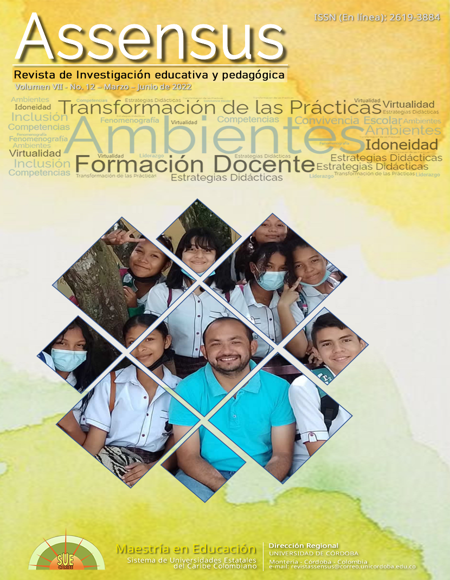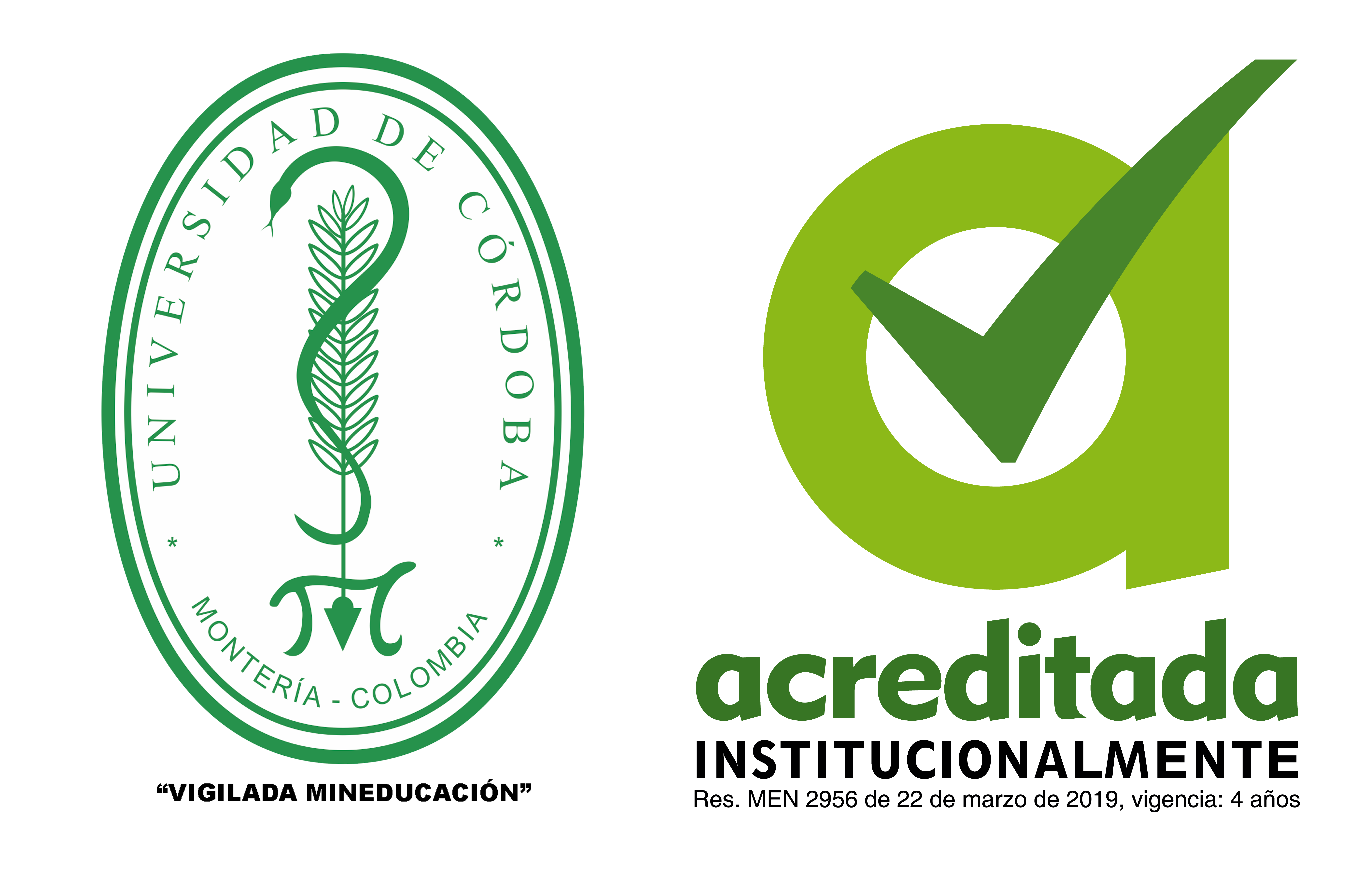Interactive discursive pedagogical strategy for the improvement of the textual comprehension of elementary school students
Estrategia pedagógica discursiva interactiva para el mejoramiento de la comprensión textual de estudiantes de básica primaria

This work is licensed under a Creative Commons Attribution-ShareAlike 4.0 International License.
The Assensus journal has a Creative Commons license. The citation, use and partial or total reproduction of the contents is authorized by citing sources. For more information, see https://creativecommons.org/licenses/by-sa/4.0/deed.en
Show authors biography
The purpose of the study was to evaluate the influence of an interactive discursive pedagogical strategy on the textual comprehension of elementary school students. Methodologically, it was carried out from a qualitative approach with an action research method. The population consisted of 3 teachers and 48 students from the El Gas educational institution in San Pelayo (Córdoba). To collect the information, techniques such as semi-structured interviews, discussion groups and pretest-posttest reading were used. The results indicate that the students' difficulties in text comprehension were related to the identification of the characters and ideas of the text, the making of inferences, the understanding of the superstructures and the macrostructure. Additionally, the teachers, after applying the strategy, acknowledge that it allowed them to be trained in textual comprehension and to know how to teach it, how to promote it. Finally, improvement was evidenced in the students' reading level. It can be concluded that the creation and application of the pedagogical strategy promoted the motivation and interest of teachers and students in the different activities contemplated, strengthening the teaching and learning processes of reading to improve the ability of students to interact with the text and understand it.
Article visits 237 | PDF visits
Downloads
- Bach, V. (2017). Aplicación del cuento como estrategia con enfoque sociocultural para mejorar la comprensión de textos en los estudiantes de 2° grado de educación primaria I.E. Nº 86473 Micelino Sandoval Torres. Lima: Universidad Católica Los Ángeles de Chimbote.
- Best, R., Floyd, R., & McNamara, D. (2008). Differential competencies contributing to children's comprehension of narrative and expository texts. Reading Psychology, 29(2).
- Bohórquez, L., Cabal, M., & Quijano, M. (2014). La comprensión verbal y la lectura en niños con y sin retraso lector. Revista Pensamiento Psicológico, 12(1).
- Cassany, D. (2006). Tras las líneas. Sobre la lectura contemporánea. Barcelona: Anagrama.
- Castellanos, M., & Guataquira, C. (2020). Factores que causan dificultad en los procesos de comprensión lectora de estudiantes de grado cuarto de la IED el Porvenir. Bogotá: UCC.
- Departamento Administrativo Nacional de Estadística – DANE. (2016). ENCUESTA DE CONSUMO CULTURAL -ECC 2016. Bogotá: DANE.
- García, A., Arévalo, M., & Hernández, C. (2018). La comprensión lectora y el rendimiento escolar. Cuadernos de Lingüística Hispánica, 32.
- González, S., & López, A. (2015). Escolarización temprana: su influencia sobre la comprensión lectora en primaria. Revista Cultura y Educación, 27(2).
- Hernández, R., Fernández, C., y Baptista, P. (2014). Metodología de la investigación (6.a ed) MC Graw Hill/ Interamericana Editores S.A. de C.V.
- Lerner, D. (2001). Leer y escribir en la escuela. Lo real, lo posible y lo necesario. . México: SEP Fondo de Cultura Económica.
- Mariángel, S., & Jiménez, J. (2016). Desarrollo de la conciencia sintáctica y fonológica en niños chilenos: un estudio transversal. Revista Latinoamericana de Psicología, 48(1), 1-7.
- Martínez, M. (2004). El procesamiento multinivel del texto escrito. ¿Un giro discursivo en los estudios sobre la comprensión de textos? Revista lenguaje número, 32.
- MEN. (2011). Prácticas de lectura en el aula: orientaciones didácticas para docentes. 1a. ed. Bogotá.
- Méndez, M. (2018). Compresión lectora del cuento: cómo mejorarla en estudiantes con dificultades de aprendizaje. Educere, 22(72).
- Millán, N. (2010). Modelo didáctico para la comprensión de textos en educación básica. Revista de Teoría y Didáctica de las Ciencias Sociales, 109-133.
- Monroy, L. (2018). El contexto sociocultural en las prácticas de lectura inicial. Bogotá: Universidad Externado de Colombia.
- Muñoz, A., & Ocaña, M. (2017). Uso de estrategias metacognitivas para la comprensión textual. Cuadernos de Lingüística Hispánica, 29, 223-244.
- Organización para la Cooperación y el Desarrollo Económicos - OCDE. (2016). La Educación en Colombia: Sistema educativo colombiano. Paris: OCDE.
- Perkins, D. (2000). La escuela inteligente. México: SEP.
- Rodríguez, B., Calderón, M., Leal, M., & Arias, N. (2016). Uso de estrategias metacomprensivas para el fortalecimiento de la comprensión lectora en estudiantes de segundo ciclo de un colegio oficial en Bogotá, Colombia. Revista Folios, 1(44).
- Rodríguez, C. (2011). Literacidad. Estrategias para el desarrollo de la competencia lectora en el aula. Sinaloa, México: SEP.
- Romero, M., Linares, R., & Rivera, Z. (2017). La lectura como práctica socio-cultural. Bibliotecas. Anales de Investigación, 13(2), 224-230.
- Sánchez, E., & Zamora, M. (2017). Una secuencia didáctica de enfoque socio-cultural, para la comprensión de textos argumentativos. Pereira: Universidad Tecnológica de Pereira.
- Sánchez, H. (2013). La comprensión lectora, base del desarrollo del pensamiento crítico. Horizonte de la ciencia, 31-38.
- Solé, I. (2012). Competencia lectora y aprendizaje. Revista Iberoamericana de Educación, 59, 43-61.
- Wise, N., D'Angelo, N., & Chen, X. (2016). A school-based phonological awareness intervention for struggling readers in early French immersion. Reading and Writing, 29(2), 183-205.



